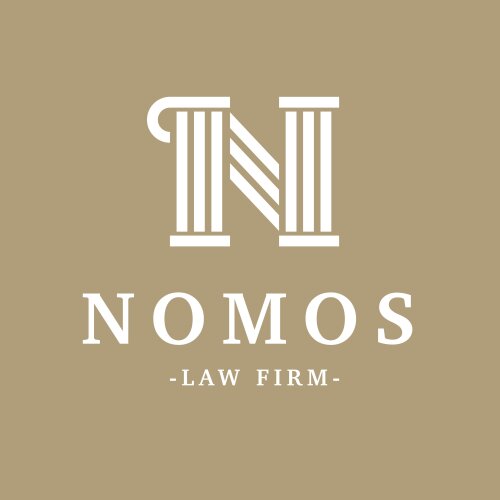Best International Trade Law Lawyers in Italy
Share your needs with us, get contacted by law firms.
Free. Takes 2 min.
Or refine your search by selecting a city:
List of the best lawyers in Italy
About International Trade Law in Italy
International Trade Law in Italy is a complex field that encompasses a range of legal practices concerning the guidelines and regulations governing trade between Italy and other countries. As a member of the European Union, Italy is subjected to both EU trade regulations and its national legislations. Italian International Trade Law covers areas such as import-export regulations, trade tariffs, customs policies, trade embargoes, and international trade agreements. This legal framework ensures compliance with trade laws and resolves disputes that may arise during international transactions.
Why You May Need a Lawyer
There are numerous situations where individuals or businesses might require legal assistance in International Trade Law, including:
- Understanding and complying with import/export regulations.
- Resolving disputes related to international sales contracts.
- Negotiating or drafting trade agreements and contracts.
- Dealing with customs issues, including tariffs and classification disputes.
- Addressing non-compliance issues or penalties related to international trade.
- Navigating trade sanctions and embargoes imposed by the EU or Italy.
- Protecting intellectual property rights in international trade.
Local Laws Overview
Key aspects of local laws relevant to International Trade Law in Italy include:
- Customs Law: Italy follows the EU Customs Code, which sets forth the regulations for trade practices and the levying of duties on goods.
- Trade Agreements: Italy is part of various EU trade agreements that facilitate easier access to international markets for Italian businesses.
- Trade Compliance: Businesses must comply with regulations including sanitary and phytosanitary measures, technical standards, and market surveillance.
- Intellectual Property: The enforcement of IP laws in international transactions is crucial to protect innovations and trademarks.
- Dispute Resolution: Businesses can utilize arbitration or litigation to resolve international trade disputes, often using EU or international trade bodies.
Frequently Asked Questions
What is the role of the EU in Italy's International Trade Law?
As a member of the European Union, Italy's trade regulations are heavily influenced by EU laws. Italy follows EU trade agreements, and its businesses benefit from the single market policies and customs union.
What are Incoterms and why are they important?
Incoterms are standardized international trade terms established by the International Chamber of Commerce, specifying responsibilities between buyer and supplier in cross-border transactions. Their application can prevent misunderstandings in international trade contracts.
How are customs duties assessed in Italy?
Customs duties in Italy are calculated based on the EU Customs Code, and consider the classification, origin, and value of goods imported.
How can trade disputes be resolved in Italy?
International trade disputes can be resolved through arbitration, mediation, or litigation, with many opting to use EU or international trade bodies for resolution.
What if a business fails to comply with trade laws?
Failure to comply with trade regulations may result in penalties, fines, and possibly the suspension of trade activities. Legal expertise is often recommended to manage non-compliance issues.
Are there specific trade barriers applicable to Italy?
While EU trade agreements lower trade barriers, certain non-tariff barriers such as technical standards and health regulations still exist. Businesses must ensure compliance with these standards.
How does Italy handle international trade sanctions?
Italy follows EU-imposed trade sanctions and embargoes. Businesses need to understand any restrictions or sanctions relevant to the countries they are dealing with.
What are the processes for importing goods into Italy?
The process includes compliance with tariff codes, obtaining necessary certifications, and adherence to health and safety standards. It often requires coordination with customs authorities.
How can I protect my intellectual property in international trade?
Businesses should ensure that their IP rights are protected through international agreements such as the Madrid Protocol, and work with legal advisors to enforce these rights in case of infringement.
What is the importance of trade compliance in Italy?
Trade compliance ensures that businesses follow all relevant rules and regulations, which minimizes risks such as penalties, delays in shipments, and damage to business reputation.
Additional Resources
For further assistance, consider consulting the following:
- Chamber of Commerce: Provides guidance and support to businesses engaging in international trade.
- Italian Trade Agency: Offers resources and assistance for internationalization of Italian companies.
- EU Commission's Trade Directorate: Provides details on EU trade policies and agreements.
- World Trade Organization (WTO): Offers comprehensive insights into the global trading system.
Next Steps
If you need legal assistance in International Trade Law, consider the following steps:
- Consult with a legal expert specializing in International Trade Law to assess your specific needs.
- Contact local trade associations or chambers of commerce for initial guidance.
- Reach out to law firms that have dedicated teams for international trade and EU regulations.
- Participate in seminars or workshops to gain a deeper understanding of international trade practices and compliance requirements.
Lawzana helps you find the best lawyers and law firms in Italy through a curated and pre-screened list of qualified legal professionals. Our platform offers rankings and detailed profiles of attorneys and law firms, allowing you to compare based on practice areas, including International Trade Law, experience, and client feedback.
Each profile includes a description of the firm's areas of practice, client reviews, team members and partners, year of establishment, spoken languages, office locations, contact information, social media presence, and any published articles or resources. Most firms on our platform speak English and are experienced in both local and international legal matters.
Get a quote from top-rated law firms in Italy — quickly, securely, and without unnecessary hassle.
Disclaimer:
The information provided on this page is for general informational purposes only and does not constitute legal advice. While we strive to ensure the accuracy and relevance of the content, legal information may change over time, and interpretations of the law can vary. You should always consult with a qualified legal professional for advice specific to your situation.
We disclaim all liability for actions taken or not taken based on the content of this page. If you believe any information is incorrect or outdated, please contact us, and we will review and update it where appropriate.
Browse international trade law law firms by city in Italy
Refine your search by selecting a city.

















